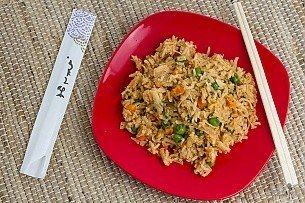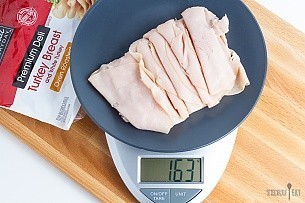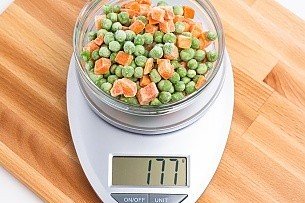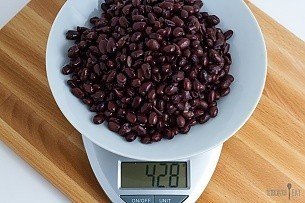If you haven’t already noticed, I heavily advocate for the purchase and use of a dehydrator. I believe it allows you to prepare and bring backpacking meals on trips that go beyond simple sustenance. To me, good tasting food is as important as a good tent or good shoes; it adds to the outdoor experience. You’re welcome to disagree though, many people are happy eating no-cook meals and munching on nuts and dried fruit for days on end.
But sometimes purchasing a food dehydrator is not feasible; there are a multitude of costs associated. Beyond the initial purchase price of a dehydrator, there’s the price of electricity to run the thing. Electricity is not free where I live. Then there’s the biggest cost factor, time. Making your own meals inherently requires a personal time investment. You have to prep ingredients to put in the dehydrator, then you have to wait for the items to dry. If you haven’t chopped off three fingers in the previous process there’s the storage of food, calculating of calories and portioning, and all the other logistical things involved when you’re creating a meal plan for a camping trip. And the longer the trip, the more effort is involved, nearly exponential feeling.
All this is to say that buying a dehydrator is not the end-all and be-all solution for everyone. If you’re not backpacking a lot or not using the dehydrator frequently you’re purchasing a really big space consuming paper weight . So where does that leave the good folks who want to eat well but don’t want to make that investment?
There’s grocery store backpacking food. Easy peasy, no fuss no muss. But for trips where ultra light weight is crucial, or longer trips where meal variety is a priority, you just can’t beat dehydrated food. Now what?
Fret not! Harmony House Foods to the rescue. Harmony House sells a large variety of dehydrated vegetables from sizes in large gallon jugs to single cup pouches. They also have freeze dried fruits as well as meat substitutes like Textured Vegetable Protein (TVP) in a few different ‘meat flavors’. The available options are a vegetarian backpacker’s dream come true.
While they cater to the vegetarian crowd, my meat-eating friends have nothing to fear, veggies are good for you too.
Harmony House is an awesome option for anyone who wants to dabble in dehydrated backpacking food. Whether it’s for dietary restrictions, ultralight goals, or taste bud satisfaction. It’s a good dip-your-toe-in-the-water of DIY backpacking meals, and it’s also a good just-keep-buying-their-products-because-it’s-ridiculously-convenient option. Who wants to buy my used dehydrator? Just kidding… kinda...
Before I gush on any further, I need to disclose that I received a Harmony House Backpacking Kit for free. Actually, I solicited it from them because I was interested in how commercial products stack up to my DIY fare. Much to my surprise they had a package on its way to me in only a couple days from my initial message. For the record, I also reached out to a couple other companies in the backpacking food arena, but no one else responded (not even a “no we can’t give you anything” just completely ignored). So two thumbs up to a company that actually communicates with their customer base. The non-responsive parties shall remain nameless.
You might wonder, “Why is the guy who dehydrates his own backpacking food going bananas about Harmony House? They must’ve paid him one million dollars!” to which my smart aleck response is, “I guess you’ve never dehydrated food in bulk. And no, they didn’t pay me.”
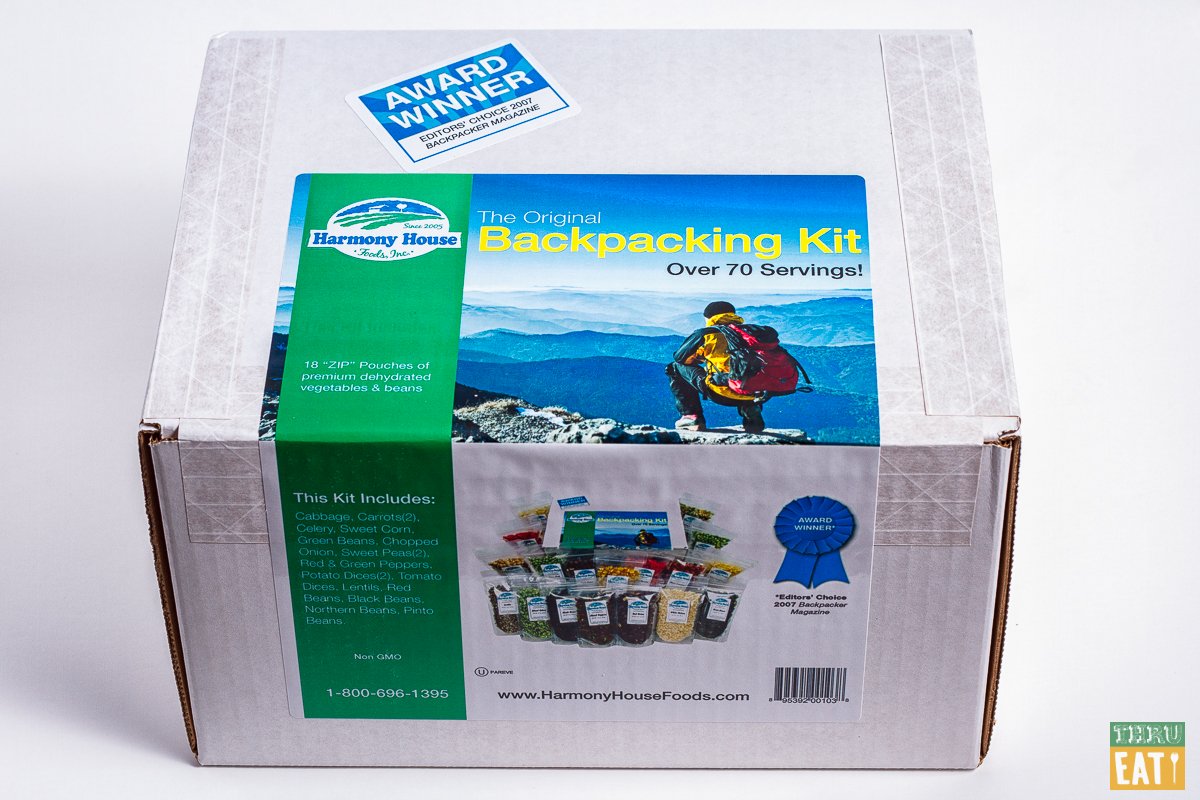
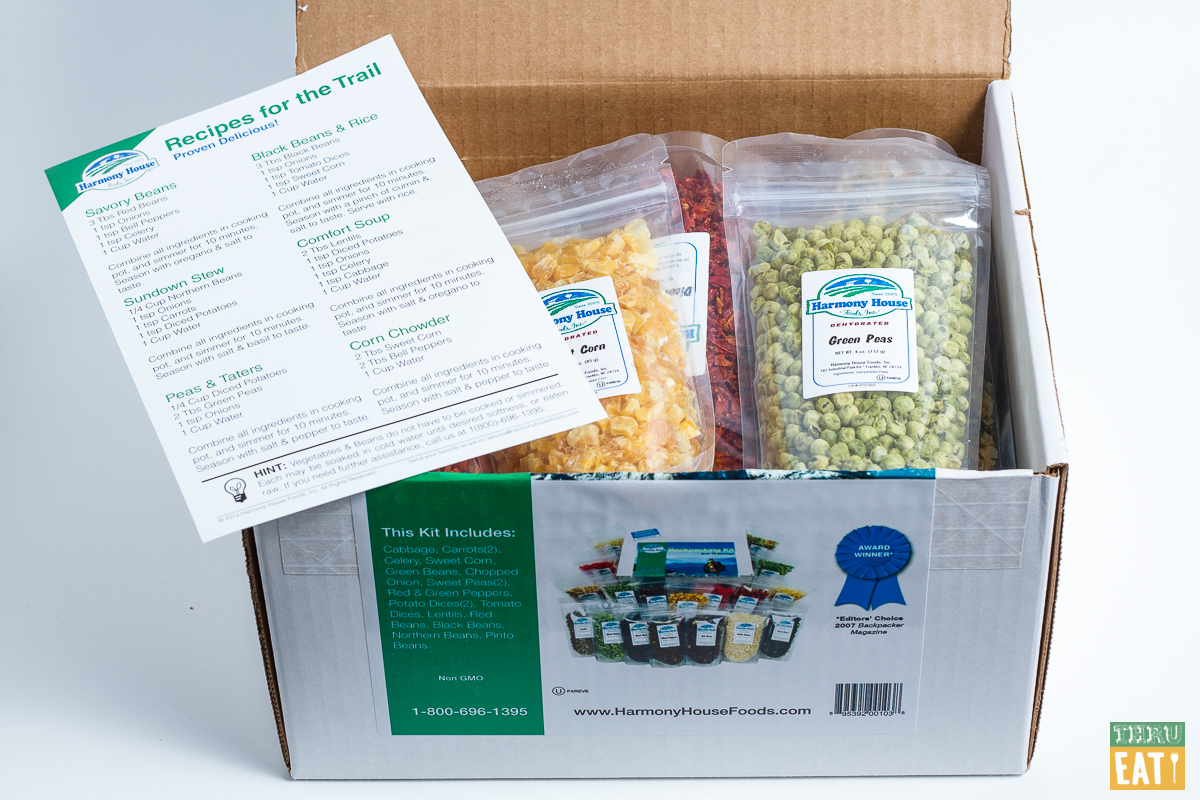
The Backpacking Kit is currently available for $44.96 (or $52.96 from Amazon with free Prime shipping) and comes with 15 different vegetables and legumes (18 pouches in total, you get two bags of carrots, diced potatoes, and green peas). The total rehydrated yield is over 45 cups. Forty five cups! You don’t have to be Einstein to figure this one out, about $1 per cup of vegetables (depending on if you add shipping/tax). To top it off, everything is non-GMO and certified Kosher.
The amount of time, effort, and money involved to purchase 15 different vegetables, chop it all up, blanch it (if necessary), dehydrate (different veggies require different drying times), and package is no small task. Believe me, been there, done that. This would be quite a few days of work and waiting.
In contrast, if you’re a huge procrastinator, Harmony House can get shipments to you via overnight FedEx. Good luck trying to accomplish all that at home in the 11th hour.
Now let’s talk about the actual vegetables, you can see the list for yourself here. Figuring out what to make with so many things is surprisingly hard, but I’ve tasted them all and my favorites so far is cabbage, green beans, and chopped onions. I’ve eaten them by the handful and spoonful straight from the bag, so much flavor and texture.
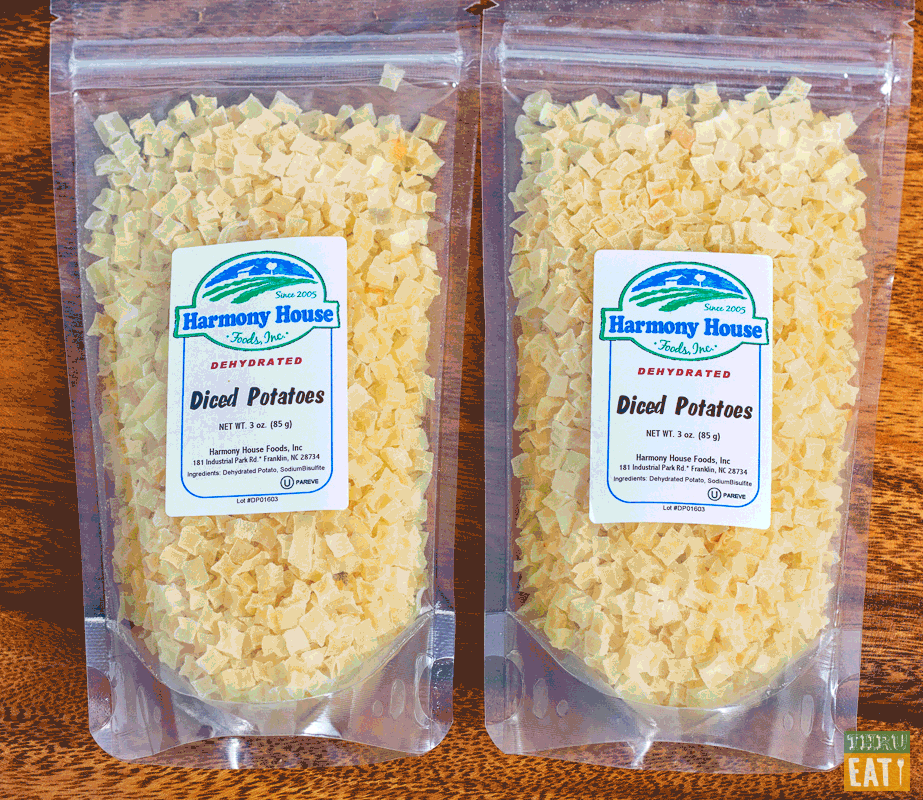
The most noticeable thing though is the consistency. Everything is cut to the exact same size and completely dry. This uniformity is impressive and undoubtedly achieved via some sort of automation, way better than I can chop by hand. I can only imagine that their drying process is a lot more refined than what can be realistically achieved at home.
Compare their black beans to my black beans, notice how most of my beans are split open but theirs remain intact.
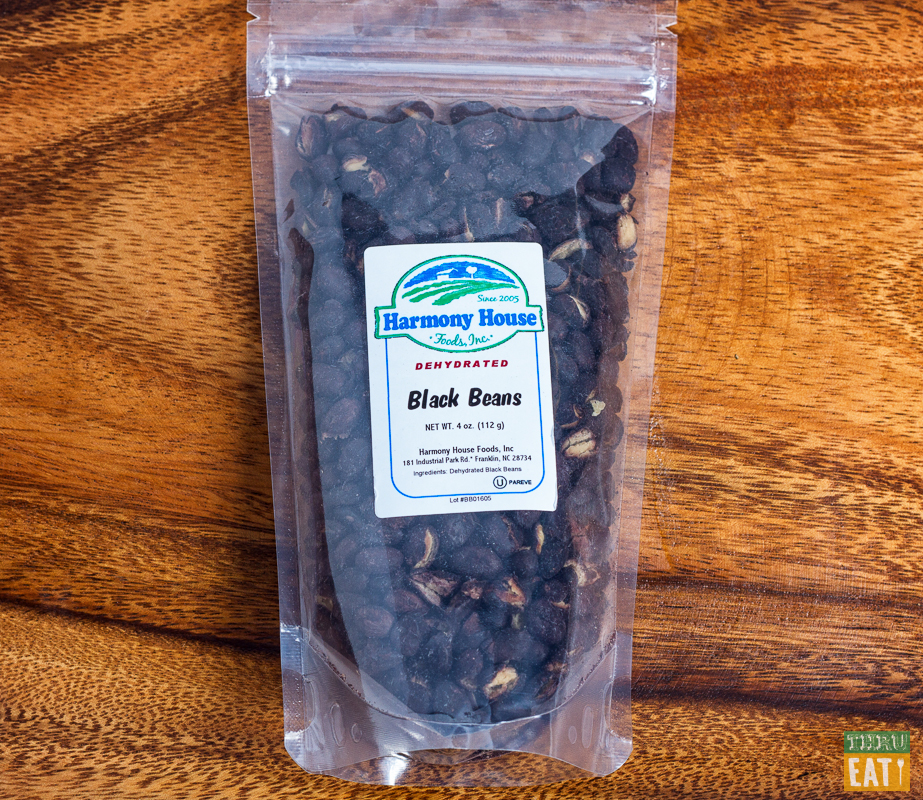

And check out their peas versus my peas, they retain their general round shape while mine are shriveled up. Their onions are crispy and I’ve eaten it by the spoonful, my onions are chewy. If I had to hazard a guess, I suspect they’re controlling the humidity, temperature, and pressure during the drying process. I bet they’re getting lower moisture levels in their end products too.
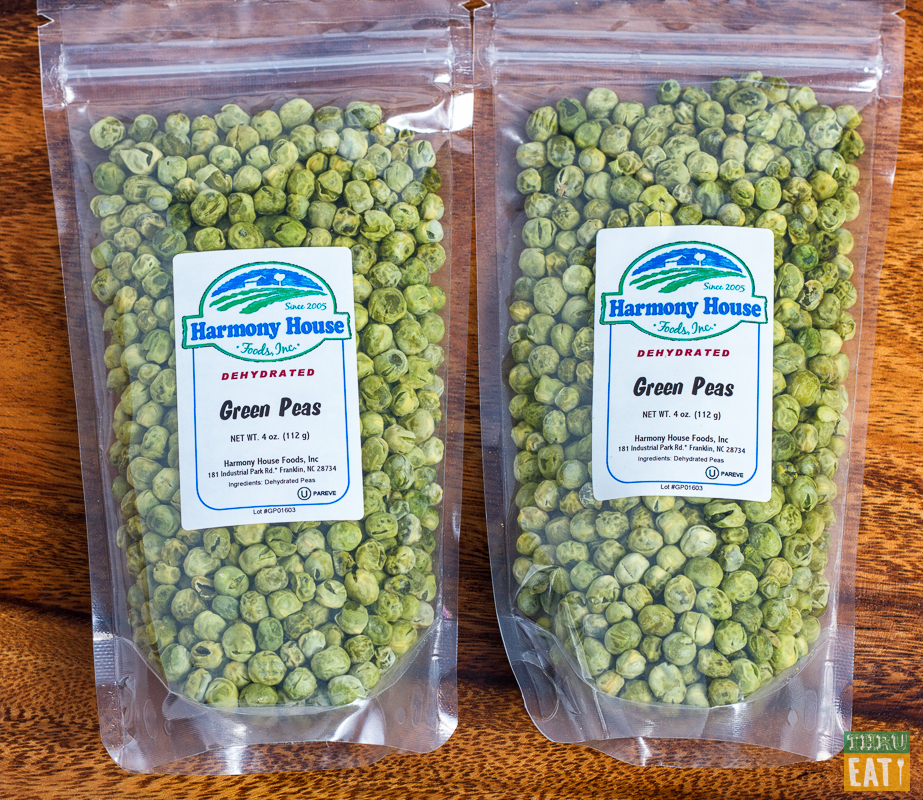

So what’s the verdict? They definitely make better dehydrated vegetables than I do. Does it matter much when it’s re-hydrated? I’d say not really, I can’t tell that the texture is any better after cooking. However, my non-scientific observation is that their vegetables also re-hydrate quicker. That’s a big deal in terms of saving fuel and time.
Just like a dehydrator, Harmony House Foods isn’t the end-all and be-all solution either. It’s another great tool in our backpacking food arsenal. If you’re starting out I’d recommend buying individual pouches that you already have a recipe in mind for, although the Backpacking Kit is a considerably better deal for the variety you get. It’s really hard to beat the convenience, quality, and variety.
Now excuse me while I place an order for a 10 pound box of dried green beans.

